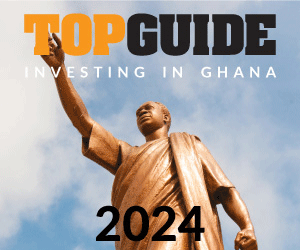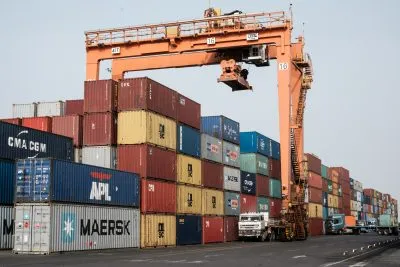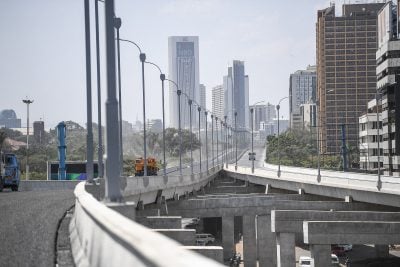Anver Versi explains the developments that led to the creation of TICAD in 1993.
By the 1960s, Japan had emerged as one of the world’s economic superpowers and it started to flex its diplomatic and soft power muscles, along similar lines adopted by the US and other Western nations as well as the USSR.
But while the West and the USSR, locked in the Cold War, vied for strategic control, Japan directed its efforts towards supporting economic growth, through its overseas development aid programme in its rapidly expanding markets first in Southeast Asia and from the 1960s, in sub-Saharan Africa.
Sea-change in attitude
There was a sea-change in attitudes towards Africa in the 1990s. It had become clear that the apartheid regime in South Africa was on its last legs and that independent Africa was not only a vital source of raw materials but potentially an economic partner.
The end of the Cold War had also brought about a sharp decline in international bilateral donor support for African countries. This turned out to be an opportunity for Japan to position itself as a genuine development partner willing and able to transfer technology and modern processes.
Japan’s emphasis on partnership, in direct contrast to the often overbearingly prescriptive stance of Western aid donors, found a ready welcome in Africa. It was then a logical step to organise a summit level conference in Japan and this became TICAD I in 1993.
Since then TICAD has evolved, adding another layer on previous commitments and agreements every at each summit meeting and strengthening the bonds between the two entities.
While Japan’s aid disbursement has been generous, given its own economic rollercoaster over the past decade, the focus of discussions have been gradually shifting away from aid to investment and trade, which is the preferred option for most African countries.
With the agreement establishing the African Continental Free Trade Area (AfCFTA) now signed and sealed and a much larger, more integrated market in the works, this year’s TICAD will have a keener edge, especially for Japanese companies looking to expand their exports and African economies in search of more cutting edge technological solutions.
Japanese development support
Between 2008 and 2018, Japan provided $102m to UN peace and security programmes, including almost $54m to the United Nations Development Programme (UNDP) in order to reinforce PKO training centres in Africa.
Tokyo has promoted cooperation between different Japanese development bodies – both with each other and with other organisations. For instance, JICA works closely with the Japan Bank for International Cooperation (JBIC) and also has a cooperation agreement with the NEPAD relating to infrastructural projects and agricultural development.
In May, the JBIC, the Nippon Export and Investment Insurance (NEXI) and several private financial institutions agreed to provide the Eastern and Southern African Trade and Development Bank with a 20-year $350m export credit line.
The money will be used to finance machinery and equipment imports from Japanese companies. JBIC says: “This credit line is being set up to financially support the efforts of Japanese companies and their overseas affiliates to expand exports to this region. It is also expected to help further strengthen the economic relationship between Japan and Sub-Saharan Africa.”
NEXI is expected to sign a memorandum of understanding with the African Trade Insurance Agency and Islamic Development Bank at TICAD 7 to provide 100% trade insurance for infrastructure projects in Africa. The facility is expected to be launched by the end of this year, with NEXI providing 85-90% coverage, with the remainder supplied by the other two agencies.
TICAD 7 – highlights
TICAD 7 will focus on the promotion of private investment. It will also focus on human resources development, vocational training and the growth of small and medium-sized enterprises (SMEs) as it has done in the past and which is a major feature of the Japanese approach to aid.
Japanese SMEs, the backbone of the Asian nation’s economy have so far been reluctant to venture into Africa. This is largely because they do not have sufficient knowledge of the opportunities presented by Africa.
TICAD 7 will provide African countries with an excellent platform to finalise potential partnerships with Japanese companies and investors.
The three discussion pillars for TICAD are:
Accelerating economic transformation and improving the business environment through innovation and private sector engagement. Key areas include economic diversification and industrialisation; debt transparency and sustainability; quality infrastructure; and investments in agriculture and the blue economy.
Deepening a sustainable and resilient society by focusing on health, education, environment and disaster risk reduction.
Strengthening peace and stability, including issues over institution building and good governance refugees and internally displaced people.
Participants
On the occasion of TICAD, a variety of business-related events are organised. For the first time in the history of TICAD, the representatives of the private sector of Japan and Africa will participate in a plenary session called “Public-Private Business Dialogue”, held in the National Convention Hall, which will be attended by an audience of 3,000.
In addition, JETRO will organise the “Business Forum & EXPO”, in which 158 Japanese companies that operate in or have an interest in Africa will exhibit their products or technology. This will provide momentum and opportunity for business people from Africa and third countries to promote business relationships with Japan.
Japanese companies generally invest in areas where their counterparts are already active, so it is vital that all parts of the continent seek to publicise their attractions at events such as TICAD.
Want to continue reading? Subscribe today.
You've read all your free articles for this month! Subscribe now to enjoy full access to our content.
Digital Monthly
£8.00 / month
Receive full unlimited access to our articles, opinions, podcasts and more.
Digital Yearly
£70.00 / year
Our best value offer - save £26 and gain access to all of our digital content for an entire year!
 Sign in with Google
Sign in with Google 




